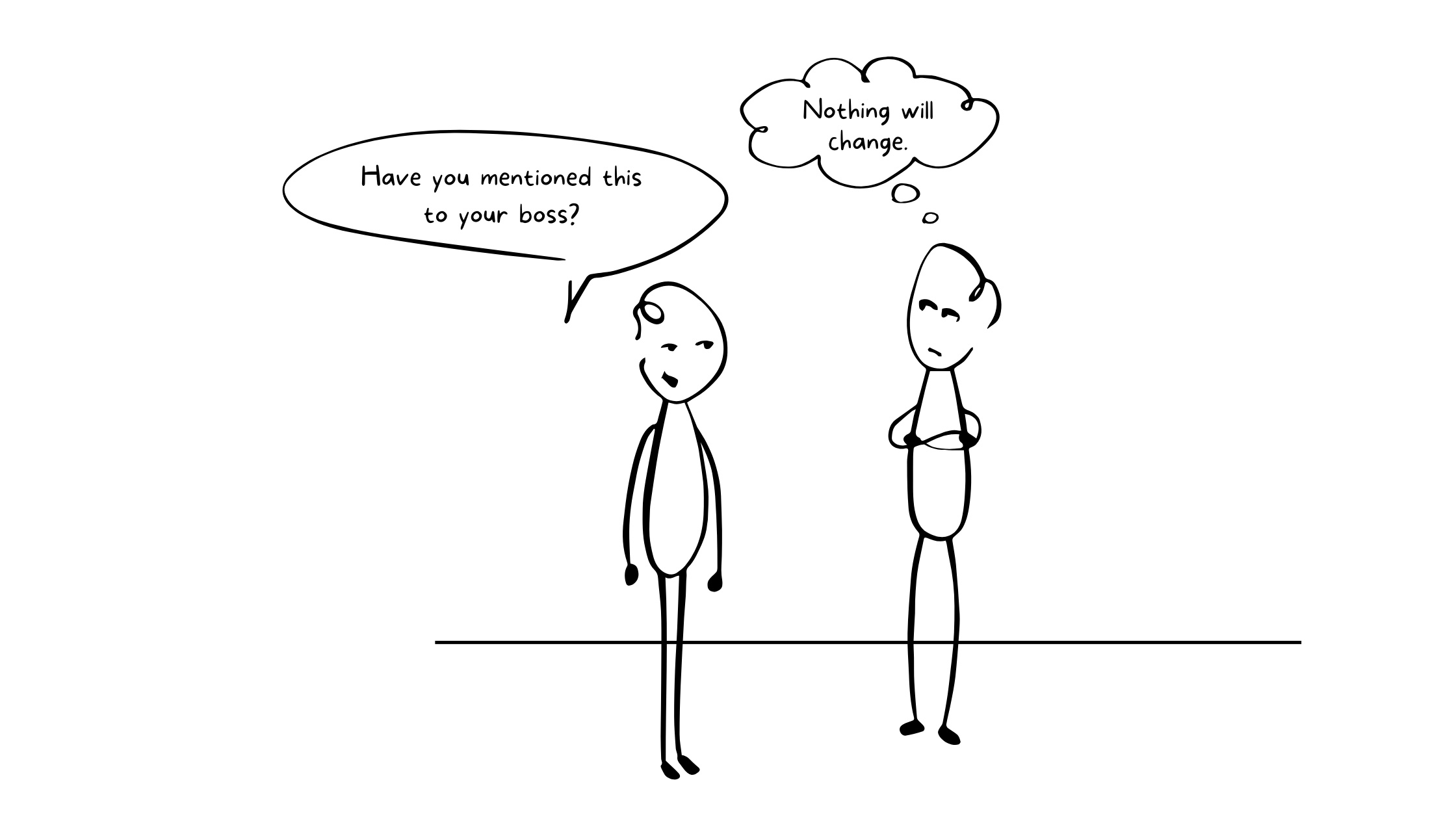Sharing Feedback, Even When It Feels Pointless - Mindshift Moments

The Moment:
You’ve been feeling frustrated about a conversation you had with your boss recently and have shared those feelings with your colleague. Your colleague suggests, “Why don’t you give your boss some feedback about this?” But you’re already rolling your eyes, thinking, Why? He’s never going to change. It feels pointless, even risky, to try to give feedback to him when you don’t expect him to do anything with it. Why bother, right?
The Mindshift:
What if the purpose of feedback isn’t about making someone change?
Most of us believe that giving feedback to someone should lead to an immediate change. If I offer feedback, the person should be grateful for my honesty, and instantly adjust their behavior, and if they don’t…well, it feels like they’re not listening, or they just don’t care.
What if you viewed feedback as a way to share your perspective openly and generously—without assuming the person will change or immediately “get it”? Instead of expecting transformation, approach it as a way to share how you experience their behavior. Your boss may not really understand how their behavior is affecting you, your work, or the team as a whole. And until you tell them, they simply don’t have the information to understand your perspective.
When you share generously, you’re inviting them into a different level of understanding and collaboration, one that can only come from honest conversations. It’s not about controlling their response; it’s about showing up and creating space for a more transparent working relationship.
The Strategies:
Here are three strategies to try next time you feel tempted to withhold feedback because you think it won’t make a difference:
Redefine Your Intent: Before giving feedback, set an intention to simply share your perspective, not to change the other person. Try starting with, “I’d like to share my perspective with you. I know it might be different from yours and I think it’s important for us to talk about it.” This signals that you’re interested in having an open conversation.
Get Clear on the Impact: Be specific about how their actions impact you or the team. Describe the real impact of their behavior. This requires some vulnerability on your part, which is where we tend to get tripped up! “You dismissed my idea in the meeting yesterday” is not the same as saying, “I start second-guessing myself and hesitate to contribute again when I feel like my idea has been dismissed.” In the second example, you are describing the real impact of their behavior from your perspective. Pro Tip: When you are sharing your perspective, your feedback almost always starts with the word “I” - not “you”.
Detach from the Outcome: Remember, your goal is to offer your perspective—not to control their response. After you share your perspective, be willing to let go of how they choose to take it. They may need time to process, or they may respond in ways you don’t expect or see. Either way, by sharing the feedback, you’ve done your part to create transparency.
When we walk around thinking feedback is only worth it if it leads to immediate change, we create a costly cycle of frustration, resentment, and disengagement. Each time you choose not to share your perspective, you’re silently lowering the bar for transparency in your workplace, allowing for a slow bleed on trust and collaboration.
When team members feel unheard or misunderstood, creativity shrinks, communication falters, and the space for real growth and innovation starts to erode. It’s a costly barrier to the effectiveness of your team’s goals and, ultimately, your collective success.
